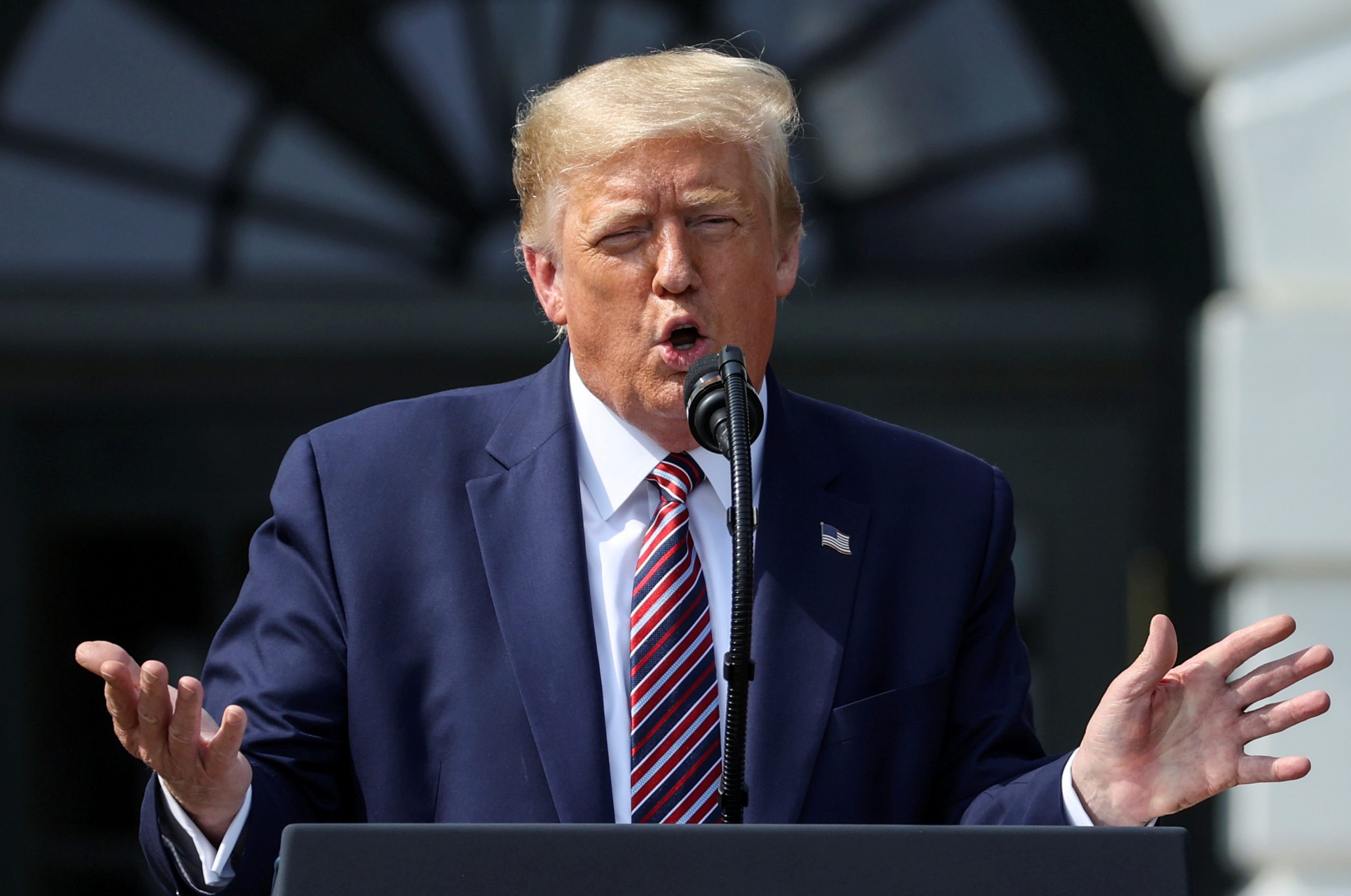U.S. President Donald Trump’s push to crack down on illegal immigration and reshape legal immigration was at the heart of the Republican’s winning 2016 campaign and has remained at the forefront of his White House agenda.
Former Vice President Joe Biden, the likely Democratic nominee, promises to rescind many of those policies and advance his own agenda if he wins the Nov. 3 election.
Here is a look at some of their immigration stances.
CORONAVIRUS IMMIGRATION RESTRICTIONS
Trump has dramatically curtailed immigration and travel into the United States during the coronavirus pandemic, arguing the steps were needed for health reasons and to protect jobs for U.S. workers.
Earlier this month, his administration announced new rules that could have forced tens of thousands of international students to leave the country if their schools held all classes online amid the pandemic.
In response to the policy, Biden tweeted support for international students.
“They study here, innovate here, they make America who we are,” he said. “Donald Trump doesn’t get that.”
Faced with broad opposition from colleges, business associations, tech companies and labor unions, the Trump administration abandoned the plan earlier this week but may revisit the issue.
During the pandemic, Trump has restricted the entry of many foreign workers and immigrants seeking “green cards” for permanent residency, saying the moves would help U.S. workers amid the coronavirus-battered economy.
Biden tweeted at the time that Trump was banning immigrants to distract from his administration’s pandemic response and that “immigrants help grow our economy and create jobs.”
Trump also implemented a health-focused policy that allows U.S. officials to rapidly deport migrants caught at the U.S.-Mexico border, bypassing standard legal processes.
Biden has said he will pause deportations for 100 days after taking office, but his campaign did not immediately comment on the coronavirus-related border rules.
‘DREAMERS’
The Supreme Court ruled in June against Trump’s 2017 decision to end the Deferred Action for Childhood Arrivals (DACA) program, which protects from deportation immigrants popularly known as “Dreamers,” who were brought illegally to the United States as children.
The high court’s ruling – which found Trump’s termination of the program was “arbitrary and capricious” – left the administration the option to reissue the decision, which it is expected to do in the coming days or weeks.
The DACA program, launched by then-President Barack Obama in 2012, grants deportation relief and work permits to about 644,000 mostly Hispanic young adults, but does not provide them a path to citizenship.
Biden says he will reverse Trump’s “cruel” decision to end DACA and strengthen protections for “Dreamers.” He would make them eligible for federal student aid for college.
U.S.-MEXICO BORDER WALL
Trump’s promises to build a wall along the U.S. southern border with Mexico and make Mexico pay for it were the centerpiece of his hard-line immigration rhetoric during the 2016 campaign, energizing his supporters and enraging Democrats.
But there has been limited progress on construction and Mexico has refused to pay for it, leaving the U.S. government to foot the bill, partially from Pentagon funds. Federal court records show the Trump administration has ramped up efforts to seize land for the barrier.
Biden’s immigration plan would end the diversion of funding from the military to build the wall and focus instead on border enforcement like investments in improving the screening infrastructure at ports of entry.
FAMILY SEPARATIONS
Trump’s “zero-tolerance” policy to prosecute illegal border crossings led in 2018 to several thousand children being forcibly separated from parents and legal guardians detained on the Mexico border.
The policy, described by the administration as a deterrent, sparked outrage, and the backlash led Trump to sign an executive order to end the practice. But the administration continued to separate hundreds of kids traveling with other adult relatives.
Biden would end the prosecution of parents for minor immigration violations, which he calls an “intimidation tactic,” and make it a priority to reunite any children still separated from their families.
TRAVEL BAN
Trump signed an order banning entry to immigrants from seven Muslim-majority countries, a move Biden and other critics said discriminated against Muslims. A federal court blocked the initial ban, but in 2018 the Supreme Court upheld an amended version that has since been expanded to other countries.
Biden has promised to rescind the bans, calling them an abuse of power “designed to target primarily black and brown immigrants.”
(Reporting by John Whitesides and Ted Hesson in Washington; editing by Colleen Jenkins and Jonathan Oatis)

























 Continue with Google
Continue with Google